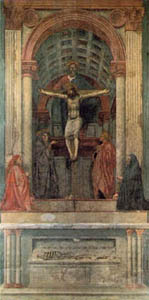Pope issues a reminder -- those aware of unconfessed mortal sin should not receive Holy Communion
Those in Mortal Sin Cannot Go to Communion, Says Pope
Our Holy Father, in a letter dated March 8th, reminds all Catholics of the deep relation between the sacraments of Reconciliation and the Holy Eucharist - for one prepares us for the worthy partaking in the other.
Confession brings us back into full communion with God and His Church so that we may publicly proclaim our unity with God and neighbor by receiving Holy Communion - Holy Communion is, as part of its sacramental nature, a sign of the true unity we posses.
This is also why non-Catholics are asked not to receive Communion in a Catholic Church -- because Holy Communion does not cause unity, it demonostrates unity!!
Here is the text from the Zenit article:
In keeping with Church teaching, John Paul II issued a reminder that no one who is aware of being in a state of mortal sin can go to Communion.
The Pope confirmed the traditional teaching of the magisterium in a message published by the Holy See on Saturday. The message was addressed to young priests who attended a course last week on the "internal forum" -- questions of conscience -- organized by the tribunal of the Apostolic Penitentiary.
The Holy Father dedicated his letter, signed March 8 in the Gemelli Polyclinic where he was hospitalized, to the relationship that exists between the Eucharist and confession.
"We live in a society that seems frequently to have lost the sense of God and of sin," writes John Paul II. "In this context, therefore, Christ's invitation to conversion is that much more urgent, which implies the conscious confession of one's sins and the relative request for forgiveness and salvation.
"In the exercise of his ministry, the priest knows that he acts 'in the person of Christ and under the action of the Holy Spirit,' and for this reason he must nourish [Christ's] sentiments in his inner being, increase within himself the charity of Jesus, teacher and shepherd, physician of souls and bodies, spiritual guide, just and merciful judge."
The Pope continues: "In the tradition of the Church, sacramental reconciliation has always been considered in profound relationship with the banquet of the sacrifice of the Eucharist, memorial of our redemption.
"Already in the first Christian communities the need was felt to prepare oneself, with a worthy conduct of life, to celebrate the breaking of the Eucharistic bread, which is 'Communion' with the body and blood of the Lord and 'communion' ('koinonia') with believers who form only one body, as they are nourished with the same body of Christ."
Because of this, the Pontiff recalls St. Paul's warning to the Corinthians when he said: "Whoever eats the bread or drinks the cup of the Lord in an unworthy manner will be guilty of profaning the body and blood of the Lord" (1 Corinthians 11:27).
"In the rite of the Holy Mass," notes the Pope, "many elements underline this exigency of purification and conversion: from the initial penitential act to the prayers for forgiveness; from the gesture of peace to the prayers that the priests and faithful recite before Communion."
"Only someone who is sincerely conscious of not having committed a mortal sin can receive the Body of Christ," states the papal message, recalling the doctrine of the Council of Trent. "And this continues to be the teaching of the Church also today."
The Catechism of the Catholic Church explains the difference between mortal and venial sin in Nos. 1854 to 1864.










0 Comments:
Post a Comment
<< Home